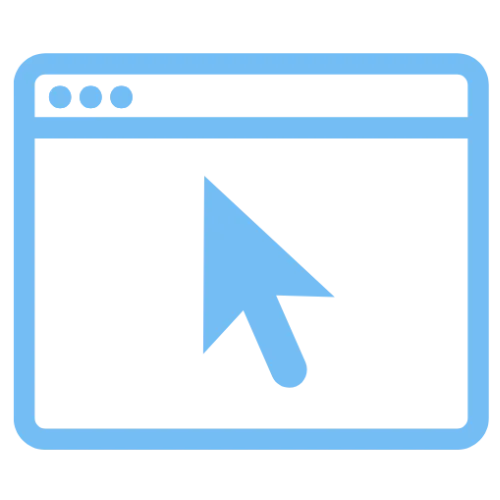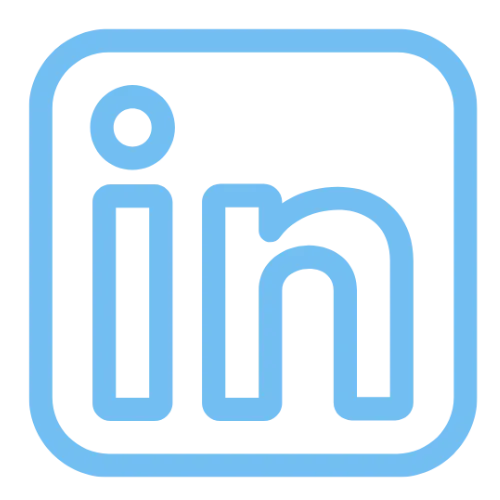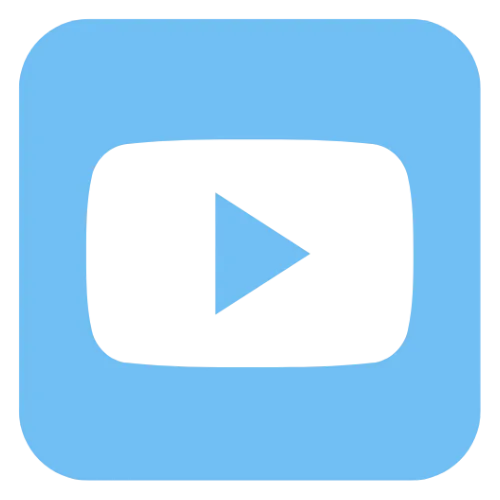We love our coaching clients and greatly respect the international coaching federation. We help our clients find dream jobs and a long-term career path for greater fulfillment.
Our Testimonials
Our Online Reviews
Mohit, Canada
Patrick, Texas
Anna, Virginia
Angie, Texas
Jordan, Minneapolis
Jordan, Denver
Perry, Indiana
ARE YOU TRULY SATISFIED WITH YOUR CURRENT JOB?
Take the Free 1 min Survey

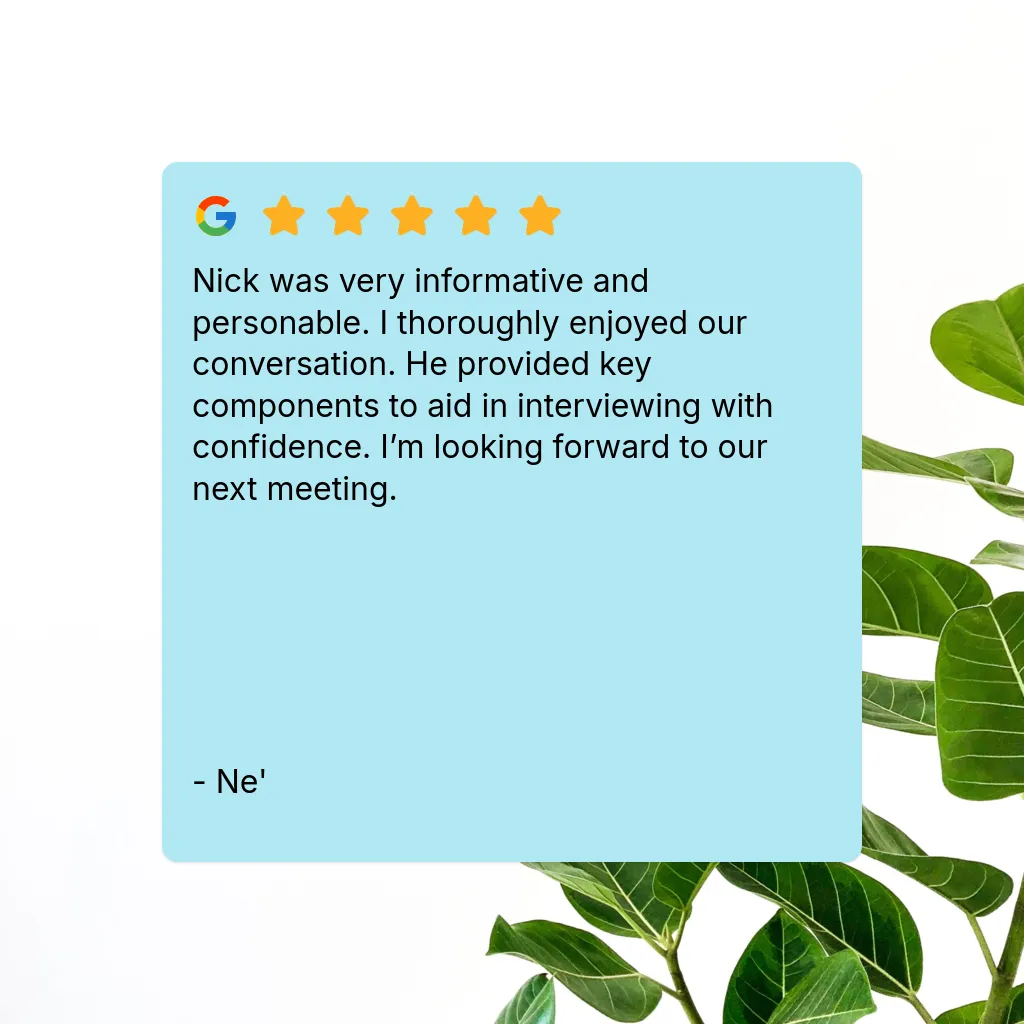
Career Transition Services
Making a career change doesn't have to feel overwhelming. As your career transition coach, I'll guide you through:
Comprehensive career assessment tools to identify your strengths and -opportunities
Strategic career development planning aligned with your values
Practical steps to find new career paths that excite and fulfill you
Implementation strategies to make your transition smooth and successfull
Transformative Coaching Methodologies:
A Guide to Empowering Client Success
In the journey toward personal and professional development, coaching methodologies serve as the compass that guides both coach and client. As a career and business coach, I've witnessed firsthand how the right coaching framework can transform aspirations into achievements. Let's explore the most effective coaching methodologies and how they create pathways to success.
The Foundation of Effective Coaching
Coaching methodologies are structured approaches designed to facilitate growth, learning, and achievement. Unlike rigid formulas, these frameworks provide flexible guidance while adapting to individual needs. The most powerful coaching relationships occur when methodology meets authenticity—where structured processes enhance rather than restrict the human connection.
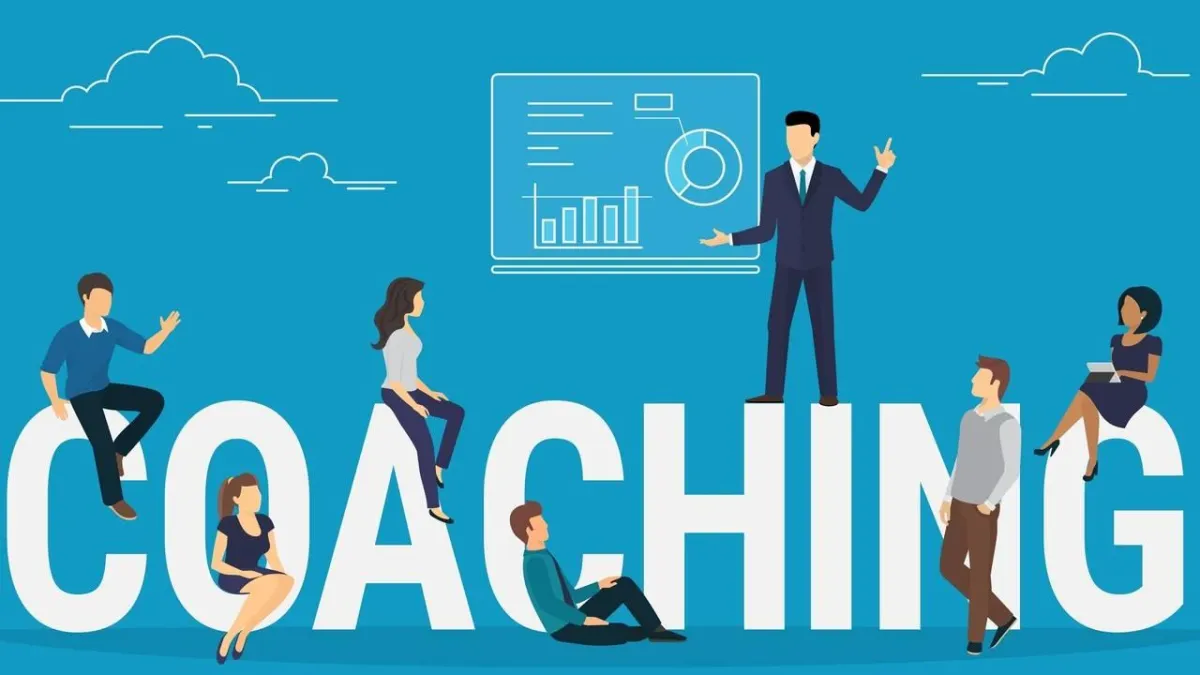
Popular Coaching Methodologies Explored
GROW Model
Perhaps the most widely recognized coaching framework, the GROW model (Goals, Reality, Options, Will) offers a straightforward yet powerful approach. Beginning with clear goal-setting, this methodology helps clients assess their current reality, explore possible pathways forward, and commit to specific actions. Its simplicity makes it versatile across contexts, from executive leadership to personal development.
The GROW model excels in building confidence and motivation, particularly when clients feel overwhelmed by possibilities or uncertain about direction.
CLEAR Methodology
The CLEAR methodology (Contracting, Listening, Exploring, Action, Review) emphasizes the coaching relationship itself. Starting with establishing clear agreements about expectations, this approach values deep listening before exploring options. This patient, relationship-centered approach often reveals insights that more directive models might miss.
CLEAR works exceptionally well in organizational settings where interpersonal dynamics and communication patterns significantly impact outcomes.
OSKAR Solution-Focused Approach
Solution-focused coaching through the OSKAR model (Outcome, Scaling, Know-how and resources, Affirm and action, Review) shifts attention away from problems toward possibilities. By focusing on what's working rather than what's broken, OSKAR helps clients leverage existing strengths and resources.
This methodology proves particularly effective when clients are stuck in problem-analysis paralysis or negative thinking patterns.
FUEL for Performance Enhancement
The FUEL methodology (Frame the conversation, Understand the current state, Explore the desired state, Lay out a success plan) creates clarity and direction. Its structured progression from framing to action planning helps clients navigate complex transitions with confidence.
FUEL works well in performance coaching scenarios where specific outcomes need to be achieved within defined parameters.
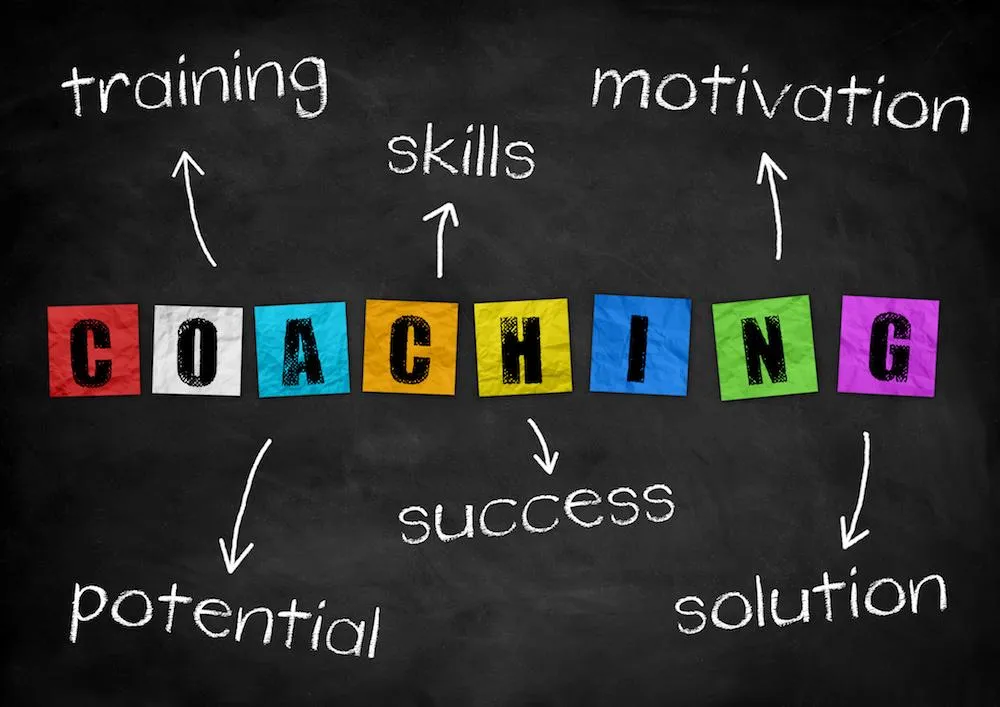
Beyond Frameworks: The Art of Methodology Integration
The most skillful coaches recognize that no single methodology serves all situations or clients. The art of coaching lies in the thoughtful integration and adaptation of methodologies to meet each client where they are.
Situational Coaching Intelligence
Effective coaches develop what I call "situational coaching intelligence"—the ability to recognize which methodologies will best serve a particular client at a specific moment in their journey. Sometimes, a client needs the structure of GROW; other times, they need the solution-focus of OSKAR or the relational depth of CLEAR.
Intuitive Methodology
The intuitive coaching approach recognizes that sometimes the most powerful insights emerge from the spaces between structured questions. By cultivating presence and deep listening, intuitive coaching creates room for unexpected breakthroughs. This approach doesn't abandon methodology but rather holds it lightly, allowing for organic exploration.

Implementing Methodologies Effectively
Assessment and Alignment
Before applying any methodology, skilled coaches assess client readiness, learning style, and contextual factors. This pre-work ensures the chosen approach aligns with client needs rather than coach preference.
Transparent Partnership
Sharing the methodology with clients creates collaborative transparency. When clients understand the "why" behind coaching questions and processes, they become active partners rather than passive recipients of coaching.
Adaptive Application
Methodologies should be living frameworks that evolve throughout the coaching relationship. The willingness to pivot approaches mid-session demonstrates coach responsiveness and prioritizes client outcomes over procedural adherence.

The Future of Coaching Methodologies
As coaching evolves, we're seeing exciting developments in methodology integration with neuroscience, positive psychology, and systems thinking. Future methodologies will likely incorporate more nuanced understanding of how the brain creates sustainable change and how individual growth connects to broader systems.
Conclusion
The most profound coaching doesn't happen through methodology alone but through the authentic connection between coach and client, supported by thoughtful structure. Whether you're a coach selecting approaches or a client seeking coaching, remember that methodologies are meant to enhance, not replace, the fundamentally human process of growth and discovery.
The best methodology is ultimately the one that helps each unique client move from where they are to where they want to be—with greater clarity, confidence, and capability. When framework meets flexibility, and structure supports spontaneity, coaching creates the transformative space where lasting change can flourish.
Frequently Asked Questions
If you are new to career coaching or business coaching, take a read through our FAQ
What is professional coaching?
Coaching is an iterative, targeted, interactive process designed to facilitate concrete changes in performance—and bottom-line results. At CoreTactic we help clients achieve their goals through powerful conversations that are intended to inspire new thinking, perceptions and behavior that actualize your potential, improve your performance, create focus and directional clarity, support the achievement of your personal and professional goals, and enhance the quality of your life.

What is the objective of a coaching engagement?
The objective is to focus on your potential (your unrealized ability, capacity or possibility) by leveraging your strengths, uncovering what’s in your way, and targeting the areas you are most interested in addressing to help you reach your goals more effectively.
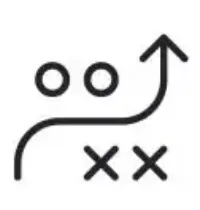
Can I change through coaching?
Yes, you can. We’ve seen many clients change in powerful ways. And they’ve likely had ambitions, goals, concerns and challenges that are similar to yours. Coaching can be the catalyst to profoundly shift the trajectory of your life, enabling you to change the quality of your life and the direction of your career in ways you never dreamed of.

What about confidentiality? Will my information be safe?
YES, what happens in our sessions stays in our sessions.
We fully understand the value of your trust, and we take every precaution to safeguard it. We will provide you with a detailed description of the ethical code that governs every client-coach relationship we enter. This document not only places our standards before you in plain text, but also codifies our commitment to you, the client, and your progress.

How often would I meet with my coach?
We meet with clients once a week. Through many years of experience and testing of different time frames, we’ve found that this frequency yields the greatest returns in terms of change. Meeting once a week offers time for reflection and application of learning between sessions, while maintaining the momentum of our work together.
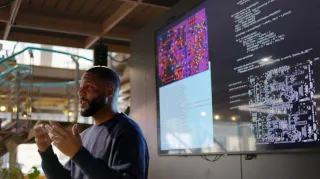
How do I meet with my coach?
CoreTactic provides virtual online coaching throughout the US and into Canada. We are also located in Minneapolis, Minnesota and can meet face to face if desired.
How long does the coaching process take?
The time frame can vary greatly and depends on a wide range of factors: your goal(s), your commitment and openness to change, your capacity for introspection, your circumstances, how quickly and thoughtfully you complete homework assignments, and other unique factors.
We have individuals who come in for a very brief engagement (e.g., one mock interview coaching session). We have others who come in focused on one goal, achieve that goal, and begin work on another goal and then another. Those individuals who partner with us in multiple capacities and for multiple goals work with us for a year or more.
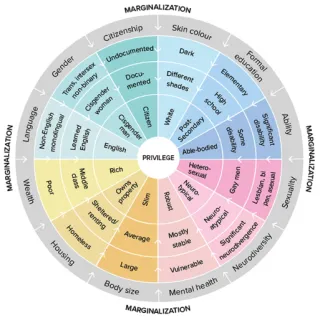
What if I want to end my coaching engagement?
You may choose to terminate work at any time, although it is helpful for your coach to have a week’s notice in order to prepare a final session that focuses on review and closure. Ultimately, that decision is up to you.

What is the difference between therapy and coaching?
The differences between coaching and psychotherapy are:
Coaches focus on the future. Therapists focus on the past.
Coaches center their work around the belief that clients are healthy. Therapists utilize a framework that is based on pathology and illness.Coaches work with the conscious mind. Therapists work with the unconscious mind.
Coaches’ work is often time-limited with specific desired behavioral outcomes. Therapists’ work is open-ended with “understanding” as the primary objective.
Coaches work in person, as well as over the phone. Therapists usually work in person only.
There are similarities between coaching and psychotherapy as well.
They are:
-Both are concerned with making concrete changes in your emotional state and life.
-Both work to understand the self-limiting beliefs or behavior caused by thoughts and emotions that you may or may not be aware of.
-Both practices help you grow, change and master your emotions.

Can you provide an example of a time you helped a client develop their leadership skills? What specific strategies or exercises did you use?
As a career coach with 25 years of experience at CoreTactic (https://coretactic.net) helping highly motivated professionals find fulfillment, I recently worked with a Director of Human Resources at an automotive company in Los Angeles who was struggling to read people and understand their underlying motivations.
Through our coaching sessions, we identified that confidence was the core issue affecting his leadership capabilities. We developed a strategy that included regular coaching calls where we would analyze specific workplace situations and break down interpersonal dynamics. Together, we brainstormed leadership approaches and professional solutions to scenarios he encountered. We also performed a SWOT analysis and write up a RACI model to highlight not on the strengths and weaknesses of his team, but also who was responsible, accountable, consulted and informed.
The key to our success was creating a structured plan focused on building his confidence through practical exercises and real-world application. As a result of our work together, he has transformed into a highly effective People Officer who can confidently navigate complex workplace relationships and lead his team more effectively. This case exemplifies how targeted leadership coaching, combined with patience and careful observation, can help professionals overcome their challenges and reach their full potential.

Cross-platform social media management comes with its challenges. What is one specific challenge you've overcome, and how did you address it successfully? Share the lessons learned from navigating this particular hurdle.
Based on my experience working with business clients at CoreTactic, (https://ghl.coretactic.net) struggling with fragmented social media management, one significant challenge I've addressed was helping clients overcome the complexity of managing multiple platforms while maintaining consistent messaging and data tracking. This challenge became particularly evident when working with a client who was juggling various point solutions for their social media operations, leading to scattered customer data and inconsistent engagement.
Through implementing HighLevel's all-in-one platform, we consolidated their social media management into a single, cohesive system. The key solution involved setting up automated workflows that ensured consistent messaging across channels while maintaining real-time analytics tracking. This integration eliminated data silos and reduced their team's manual workload by 15-20 hours per week.
The main lesson learned was that efficiency in cross-platform social media management isn't just about having multiple tools - it's about having the right integrated system that allows for unified data management and consistent customer engagement across all channels. This approach not only streamlined their operations but also led to a 30-40% increase in engagement rates within the first three months. If you would like to attend our free webinar demo of Go HighLevel, from a customer's perspective. Here is a link to register: https://saas.coretactic.net

What tool do you use to create landing pages for PPC campaigns? Why do you recommend it?
We use HighLevel to create landing pages for PPC campaigns. It provides a complete solution that works well with our marketing system. The platform's landing page builder stands out for several key reasons:
First, HighLevel's landing page system allows for rapid deployment of conversion-optimized pages without requiring technical expertise. This means we can quickly test different designs and messaging to maximize our PPC campaign performance. The built-in analytics give us quick insights into how pages perform. This helps us make data-driven changes right away.
What truly sets HighLevel apart is its integration with the complete marketing automation suite. When someone visits our pages, their information goes straight into our CRM. This starts automated follow-up messages across different channels. This seamless integration has helped our clients achieve 30-40% higher conversion rates compared to using standalone landing page tools.
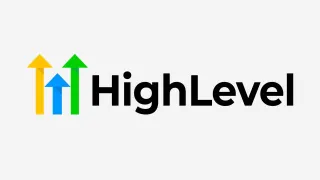
CoreTactic Professional Coaching
Nicholas T. Rustad, MBA, CSM,CSPO
CEO and Principle Coach
3436 Laura Lane
Minnetonka, MN. 55305
Office: 952-395-2030
Cell: 952-452-1306
Whats App: +19524521306
Hours:
Monday - Thursday 7am - 7pm CST
Friday - Sunday 9am - 3pm CST
We are amazing career business coaches!





